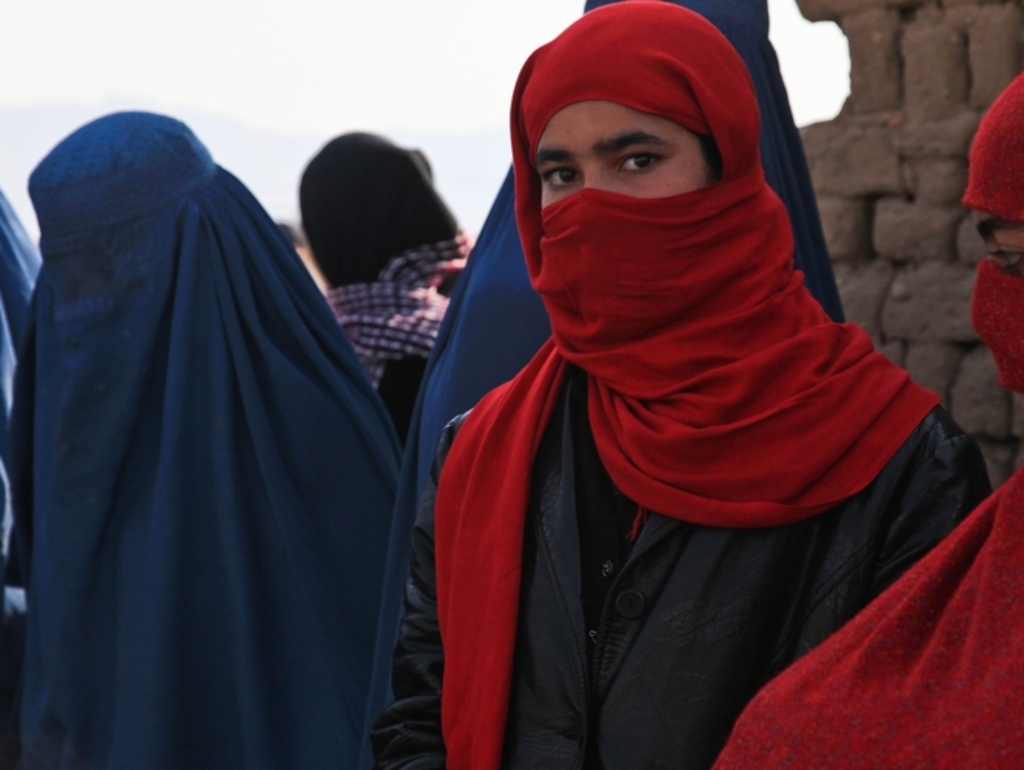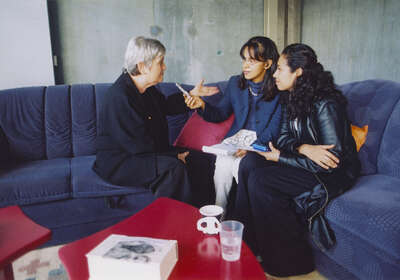If peace in Afghanistan fails, the women stand to lose the gains they have made since the collapse of the Taliban regime. Sima Samar, Coordinator for PeaceWomen Across the Globe and government official in Afghanistan speaks out for women’s rights and their inclusion in shaping her country’s peace and future. For this she has paid a high price. And yet she remains steadfast and cautiously hopeful.
She removes her headscarf, then her overcoat – and reveals a shirt emblazoned with the words: “This is what a feminist looks like.” That’s not necessarily what you might expect an Afghan woman to wear. But the statement exemplifies just what kind of a woman Sima Samar is: committed, unflappable and unapologetically feminist.
Sima Samar, a medical doctor, is Special Envoy for Human Rights and State Minister for International Affairs in the Afghan government. As PeaceWomen Across the Globe’s Coordinator in Afghanistan she has organised several Women’s Peace Tables. For decades she has been an outspoken advocate for human and women’s rights, opening secret schools for girls in Afghanistan during the reign of the Taliban and the first women’s hospital in Pakistan. After the collapse of the Taliban regime, she was the country’s first female vice president and the first Minister of Women’s Affairs. In this role she paved the way for girls to return to school and women to the workforce. In her 17 years as chairperson of the Afghanistan Independent Human Rights Commission, she managed to head a truly independent organisation, promoting and protecting human rights in the conservative and conflict-affected country.
The price she has paid for her commitment to gender justice is high. Since receiving numerous death threats, she is driven around Kabul in an armoured vehicle, body guards protect her 24 hours a day. Many of the schools and clinics she opened were attacked or looted. Yet she says: “The work I do is nothing exceptional. Just the environment in which I work is difficult.” This was also her response when she received the alternative Nobel Peace Prize, the Right Livelihood Award, in 2012.
“Can’t exclude half the population”
In the past 18 years, Afghan women and girls have regained freedoms stolen by the Taliban. Women’s equality is now enshrined in the Constitution and a law criminalises violence against women. In education, the economy, health care and in politics, women’s gains have been significant – but they are fragile. Work remains to ensure that the laws become a daily reality for Afghan women. Much hung on the peace negotiations between the USA and the Taliban that came to an abrupt halt in September. At the time of writing, it is unclear whether they will continue.
At the start of the negotiations a year ago, not one woman sat at the table. Women’s groups, civil society organisations (CSOs) and activists like Sima Samar pushed for the inclusion of women, of victims of human rights violations and of CSOs. Thanks to their persistent advocacy, a few women and CSOs joined the latest rounds of peace talks. How meaningful their inclusion truly was, is questionable.
Unquestionable is that “you can’t exclude half of the population from peace negotiations,” Sima Samar says. “That’s not peace”. Should a previously planned intra-Afghan dialogue take place, it is clear that women must be included, otherwise “the peace process will be incomplete”.
She also dismisses arguments brought forth by many men: women should give up some of their rights in order to secure a peace deal, or that ending the bloodshed takes priority before women’s rights. “If we have to give up our right to choose what we want to wear or our freedom of movement that is not peace for us,” she says. “Peace means living with dignity and access to equal rights.”
Role of Women’s Peace Tables
The Women’s Peace Tables play an important role, particularly at this juncture in Afghanistan’s history. The last Peace Table was organised by Gawharshad University, founded by Sima Samar. It provided a safe space where women could talk about what peace is – not simply the absence of war – and discuss whether peace without justice or accountability can be sustainable.
“The Peace Tables are very important. We need more such programmes, particularly with university students,” she says. “The students come from different parts of the country and they take what they have learned there back to their communities in remote areas, where they can act as agents of change.”
Read more interviews with Sima Samar here and under Press review

